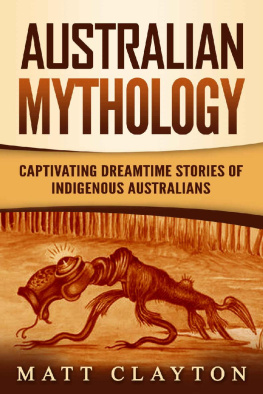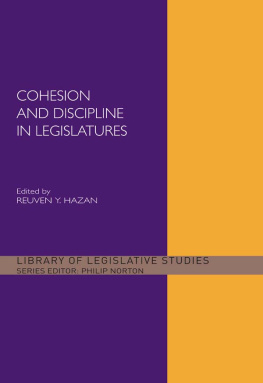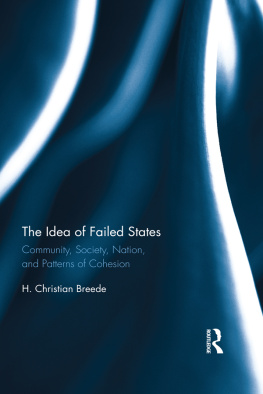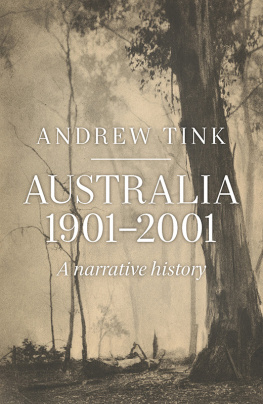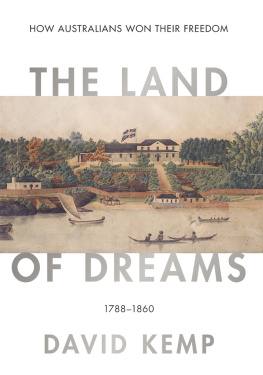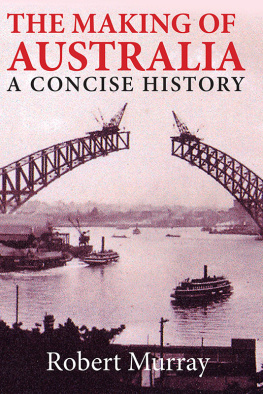An Immigrant Nation Seeks Cohesion
Anthem Studies in Australian Politics, Economics and Society
This series showcases the most significant contributions to scholarship on a wide range of social science issues, dealing with the changing politics, economics and society of Australia, while not losing sight of the interplay of other regional and global forces and their influence and impact on this region. Anthem Studies in Australian Politics, Economics and Society is intended as an interdisciplinary series, at the interface of politics, law, sociology, media, policy, political economy, economics, business, criminology and anthropology. It is seeking to publish high quality research which considers issues of power, justice and democracy and provides a critical contribution to knowledge about Australian politics, economics and society. The series especially welcomes books from emerging scholars which contribute new perspectives on social science.
Series Editor-in-Chief
Sally Young University of Melbourne, Australia
Series Editors
Timothy Marjoribanks La Trobe Business School, Australia
Joo-Cheong Tham Melbourne Law School, University of Melbourne, Australia
Editorial Board
Iain Campbell Royal Melbourne Institute of Technology (RMIT), Australia
Sara Charlesworth Royal Melbourne Institute of Technology (RMIT), Australia
Kevin Foster Monash University, Australia
Anika Gauja The University of Sydney, Australia
John Germov The University of Newcastle, Australia
Michael Gilding Swinburne University of Technology, Australia
Simon Jackman Stanford University, USA
Carol Johnson The University of Adelaide, Australia
Deb King Flinders University, Australia
Jude McCulloch Monash University, Australia
Jenny Morgan University of Melbourne, Australia
Vanessa Ratten La Trobe University, Australia
Ben Spies-Butcher Macquarie University, Australia
Ariadne Vromen The University of Sydney, Australia
John Wanna Australian National University, Australia
George Williams The University of New South Wales, Australia
An Immigrant Nation Seeks Cohesion
Australia from 1788
James Jupp

Anthem Press
An imprint of Wimbledon Publishing Company
www.anthempress.com
This edition first published in UK and USA 2018
by ANTHEM PRESS
7576 Blackfriars Road, London SE1 8HA, UK
or PO Box 9779, London SW19 7ZG, UK
and
244 Madison Ave #116, New York, NY 10016, USA
James Jupp 2018
The author asserts the moral right to be identified as the author of this work.
All rights reserved. Without limiting the rights under copyright reserved above, no part of this publication may be reproduced, stored or introduced into a retrieval system, or transmitted, in any form or by any means (electronic, mechanical, photocopying, recording or otherwise), without the prior written permission of both the copyright owner and the above publisher of this book.
British Library Cataloguing-in-Publication Data
A catalogue record for this book is available from the British Library.
ISBN-13: 978-1-78308-766-2 (Hbk)
ISBN-10: 1-78308-766-8 (Hbk)
This title is also available as an e-book.
CONTENTS
My personal experience of politics began as a boy in South London, heavily bombarded by Hitlers Luftwaffe and rockets. I came to Australia in 1956 as a newly qualified master in sociology from the London School of Economics. My first host was the Salvation Army in Fremantle as I had no money and was alone. I am grateful to them. Australia was wide open to British migrants then. It was also notably more affluent than post-war England. However, it was rather old-fashioned and conservative and very white. It was protected from others by immigration policies preferring the British and excluding non-Europeans; it was protected from new ideas and controversies by a censorship system based on the Vatican Index of prohibited items administered at the landing place by customs officers; its Sundays were devoted to closing down innocent pleasures such as newspapers, cinemas and above all the consumption of alcohol; it banned birth control and abortion, kept women in a secondary role and made divorce as hard as possible. On the international scale it was protected from potential enemies by the alliance between Britain and the United States, left over from the Japanese defeat. This saved Australia from a tiny band of communists, which got steadily smaller and has now vanished. Potential enemies never attacked.
Melbourne University reflected much of this safeguarded provincialism. Although renowned, it was inbred, with most academics born and raised locally. My later teaching posts have included Canada, Yorkshire and Canberra, with research sessions in Sri Lanka and Vanuatu. But Melbourne started me off as an academic, teaching compulsory Australian Politics One as the equivalent of a base-grade tutor.
My impressions of the world since then have largely come from international travel, which I recommend to scholars who need to get out of their studies for a look at reality. This includes regular returns to London to see the changes in my home town, which is now far more multicultural than anything in Australia; two years teaching in Canada, which showed me that a bilingual, multicultural society can be more intelligent than the officially created Australian model; years of studying and publishing on Sri Lanka, a tragedy which arose from being unable to accept ethnic variety; a field study on bicultural politics in Vanuatu as it came to independence; voyages by bus, car and train through a very wide variety of nations in Europe, Asia, the Americas and the Pacific. To understand the world, you need to go there. Many Australian academics, journalists and politicians should be better informed. It is hard for them to get away as often as they would like. Truly the tyranny of distance has always been a problem. The core perspective in this study is international rather than local. An international perspective was more difficult for scholars until ships were replaced by planes in the 1960s and then by the Internet. This was not their fault.
This is not a black armband history, to use a phrase popularized during the 1980s, except where reference is made to obvious failings, such as White Australia, refugees, racism, Aborigines, the convict system and suspicion of the outside world. Rather it is a historically based discussion of the unique experience of creating a viable modern society from a sparsely populated country by the hard work and serious planning of human beings over 230 years. It is not a history book in the usual sense, but uses historic instances to illuminate issues often spread over many years or even centuries. In the course of two centuries many wrongs were committed, many projects launched and many lives changed. Overlooking much of this could create a false report about building a unique nation at the end of the world. The alternative to black armband has too often been flag-waving. However, Australian academic history is very professional and forms the basis for my own references and studies. These I owe to my colleagues in political science and historical studies in Australia and elsewhere over a period of many years.
Among those who have helped and encouraged me in this effort have been my colleagues in the Australian National University School of Demography and especially Peter McDonald, who invited me to join them. They left me to get on with whatever I was doing, which is a priceless gift in modern academia; earlier colleagues at the University of York, especially David Coates, now in the United States; Ian Hume, now in Wales and bilingual in Chinese and Welsh; Phil Cerny, moving between York and New Jersey; founders of multiculturalism such as Peter Shergold and Sev Ozdowski; Sri Lankan friends like Vinod Moonesinghe and Don S. Abeygunawardena; Olavi Koivukangas; Nonja Peters; Barry York; Eric Richards; Hanifa Dean; Andrew Jakubowicz; and many others, including the contributors to my three encyclopedias of 1988, 2001 and 2009; the late Andrea McRobbie, who ran the office, before moving to the United States; and Liz Wayman (now in Los Angeles), who created the amazing illustrations for each of them. Their work has been maintained by Gillian Evans into the present, for which I am very grateful. I should also like to thank the Anthem Press copyeditor for all their very careful work.


